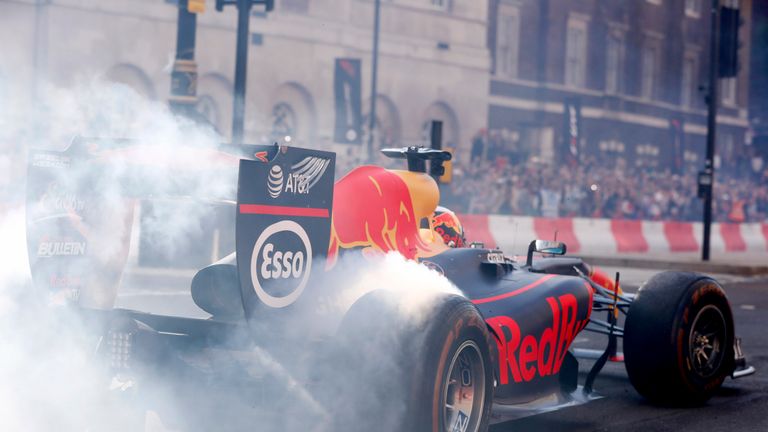F1's next engines should appeal to fans more, says Ross Brawn
"Manufacturers realise it's got to be a balance of relevance but still able to engage the passion of the fans," says F1 sporting chief on post-2020 engine direction
Monday 31 July 2017 11:43, UK
F1 needs to develop an engine for the future which provides a better emotional connection for fans, according to Ross Brawn.
Discussions are currently ongoing between F1 chiefs, current engine manufacturers and potential future suppliers over the direction the sport should take when its next generation of power units are introduced after 2020.
F1's move to hybrid turbo power three years ago came at a huge cost, and while the technology has received plaudits and straight-line speeds have increased, fans have consistency mourned the loss of louder, higher-revving engines.
While Brawn, F1's sporting chief, says completely turning the clock back to a past era would not be sensible, he agrees that it should be possible to create a modern engine with more appeal.
"We have a lot of fans who say we want to go back to normally-aspirated engines and what you've got to do is ask the next question of 'Why is that?' And it's because it creates more emotion with the noise and the revs," he said at the F1 London Live event.
"So can we create a hybrid engine which has that noise and has the revs and has the appeal? I think the manufacturers involved in Formula 1 know that that's a key element because they need to have a successful Formula 1. It's no good having an engineering exercise that demonstrates your technology if nobody is watching it.
"So the manufacturers realise it's got to be a balance of relevance but still able to engage the passion of the fans. So I think the new engine won't be going back to a normally aspirated V12, whatever the heart might say, but it will be a more exciting and more accessible than we have now."
F1 last year committed to retaining the current power units until 2020 and Brawn says the hybrid aspects of the current systems will almost certainly be retained.
But he believes the energy recovery technology could be used in more tactical ways by drivers for the enhancement of the spectacle.
It's not a question really of finding a sort of soft middle ground where you don't offend anyone because I don't think that will be the best solution," said the former team boss.
"But hybrid technology is probably going to be retained because it offers some relevance, it offers the engagement of manufacturers, but can we turn it around a little bit and make it a tactical quality? So in a race you've got much more capacity to use the battery power and the hybrid nature of the cars to try and get an advantage.
"This is not widely known but [Valtteri] Bottas got past [Lance] Stroll in Baku because he saved his battery up and used it on that last section. He used it tactically. Well, we should have all known that on the TV, it should have been something we demonstrated. So the hybrid side for sure could provide some interest in that respect."
Comment below to get involved in the debate, but please adhere to our House Rules. If you wish to report any comment, simply click on the down arrow next to the offending comment and click 'Report'.



